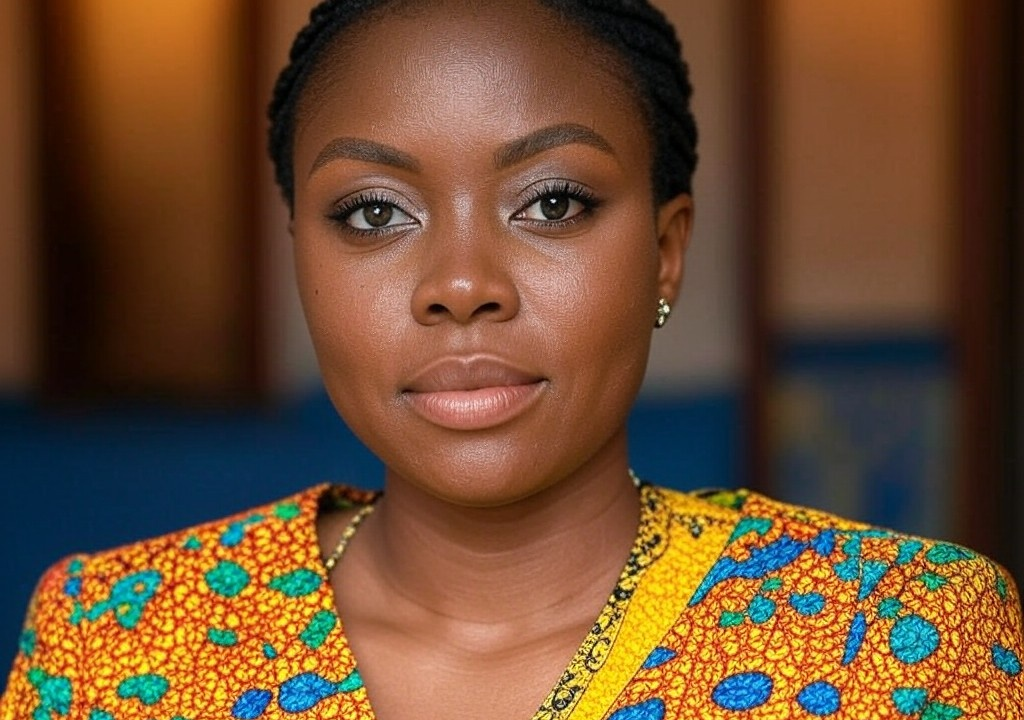It All Began With a Stranger’s Wedding
One Saturday afternoon, thick in the heart of Abuja's dry season, I found myself at the wedding of someone I only vaguely knew. If you’ve ever been part of a Nigerian family, you’ll know how it goes—you weren’t invited specifically; your mother was, but she dragged you along because, and I quote, “It’ll be good networking.” Networking for what? Who knows. But in a culture where weddings are practically a national sport, you DRESS UP and you GO. So there I was, resplendent in Ankara and matching gele, awkward and half-heartedly smiling at people whose names I’d never remember.
I wasn’t prepared for the moment that would change everything.
The Unlikely Catalyst: A Hushed Conversation at the Jollof Table
Nigerian weddings have multiple unspoken rules. Rule #1: Secure your plate of jollof rice early. Rule #2: Find your squad strategically, not too close to the loudspeakers—unless you want to leave deaf and disoriented.
Midway through dinner, I found myself balancing a plate piled sky-high (team #NoJollofLeftBehind) and accidentally eavesdropping on two women seated behind me. They were talking about the bride—her courage, her dreams of starting a nonprofit for orphaned girls, and how she’d already made waves with her first outreach program.
I leaned in closer, pretending to adjust my gele, because no true Nigerian conversation has one speaker. Suddenly, one of them said something that hit me like the first sound of Afrobeats in the club: “I think purpose is found in service.” I almost dropped my fork.
Purpose? Service? Here I was, still debating if I could ghost the reception early and go home to binge-watch Nollywood classics, and these women were out here casually discussing life's Meaning.
A Walk Down My Memory Lane
On the drive home, struggling to dislodge the words from my brain, I realized something: I’d spent years passionate about empowering women across West Africa through NGO work, but I never thought of it as my “purpose.” It was just something I knew—get a job, write reports, share proposals, rinse, repeat.
But a deeper truth was hiding beneath memories I’d rarely revisited. Like how, as a child, I loved telling stories to my siblings in our cramped Abuja living room—spinning tales of ordinary people finding magic in their lives. Or how, in university, friends kept asking me to proofread their love letters (anonymously, of course—romantic sabotage wasn’t on my résumé). Whenever I helped someone unlock their own story, it felt… right.
Still, a part of me pushed back. Was storytelling even real “work”? Was it worthy of being called purpose? After all, nobody gets Fridays off for embracing storytelling.
An Experiment: Saying “Yes” to the Messy Middle
Fast forward to two months later, and I began offering my writing skills as a “side hustle.” At first, it was maddeningly low-stakes—editing resumes, helping a colleague at work craft an anniversary card. But then came my first real test: writing a blog for an NGO focused on building access to education in rural Senegal. I stayed up till 2 a.m. drafting something worthy. With each paragraph, I felt alive, frustrated, exhilarated, as though I were cracking open a part of myself I hadn’t known existed.
I was hooked.
Storytelling wasn’t just about beautiful words or snazzy metaphors (though don’t get me wrong—metaphors are bae). It was about capturing human connection. It was about saying to someone, “I see you because I see myself in you.”
Lessons From a Chance Discovery
What I didn’t realize during that fateful wedding afternoon was that stumbling into your purpose doesn’t come with a grand fireworks display. There’s no big announcement, no dramatic Nollywood plot twist. It comes in quiet whispers, in everyday moments—the casual aside at a party, the small task you enjoy doing even if there’s no applause awaiting.
Here’s what I’ve learned from accidentally discovering my purpose:
-
Purpose Doesn’t Have to Be Obvious
It’s often hiding in plain sight, like that friend who’s been crushing on you quietly for years (and now you’re thinking about it, aren’t you?). It might already be a skill you use every day—teaching, caring, cooking, leading, encouraging. You just need to frame it in a way that reflects who you are. -
Your Purpose Grows With You
It doesn’t come fully formed, wrapped neatly like designer aso-ebi. Your purpose may evolve, just like your interests and priorities do. What felt small and insignificant yesterday can bloom into something extraordinary tomorrow. -
It Doesn’t Have to Make Sense to Anyone Else
Forget the societal checklist of respectability. Is it okay if your purpose is building furniture instead of pursuing a banking career your parents brag about at church? Absolutely. You want to write romance novels instead of technical manuals? Do it.
The next time someone gives you side-eye about your choices, tell them, “Onyinye, focus on your lane—my purpose isn’t roadside gossip.” (Or maybe say it more politely.)
- Say Yes to Things Outside Your Comfort Zone
If you’d told me years ago I’d leave the NGO world to write about love, heartbreak, and intimacy, I would’ve laughed—and yet, here I am, stepping into this new role. Saying yes doesn’t always mean knowing every step of the journey. Sometimes, it’s about trusting the process.
An Empowering Finale: Your Turn to Listen to the Whispers
Discovering your purpose isn’t a single destination. It’s not a soulmate waiting at your front door, flowers in hand. It’s a continually unfolding story—one you learn to write as you go.
Maybe you’ll discover yours at a random wedding, over a plate of jollof. Or maybe in quiet moments when you catch yourself smiling while you do something utterly mundane (like pairing socks or doodling in margins).
Whatever it looks like, trust me: purpose knows how to find you. You just need to slow down enough to listen.
So here’s my challenge to you: what are the snippets, the whispers, the stories your life has been telling you? Maybe, just maybe, your purpose has already been waiting—hiding in plain sight.




















